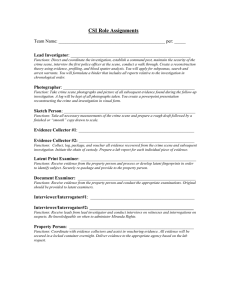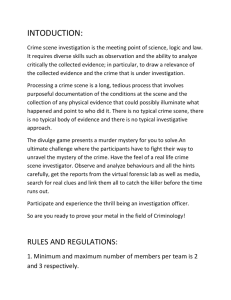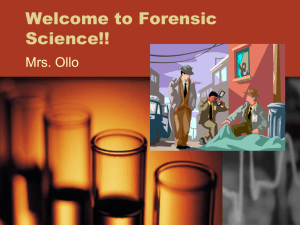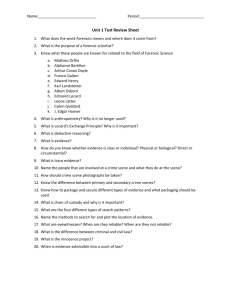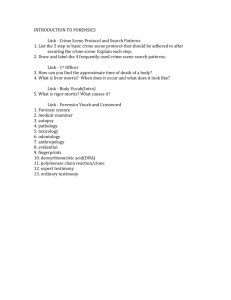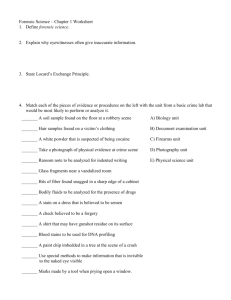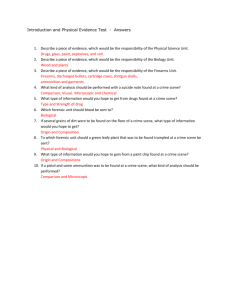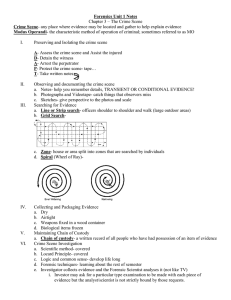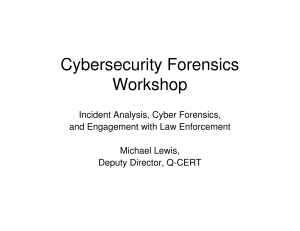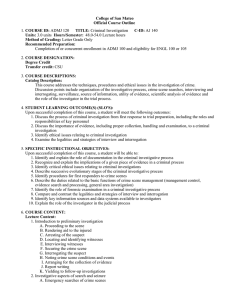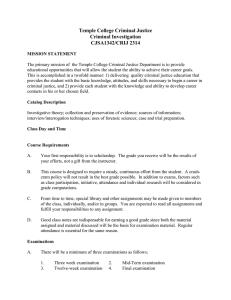Chabot College Fall 2004 Course Outline for Administration of Justice 63
advertisement
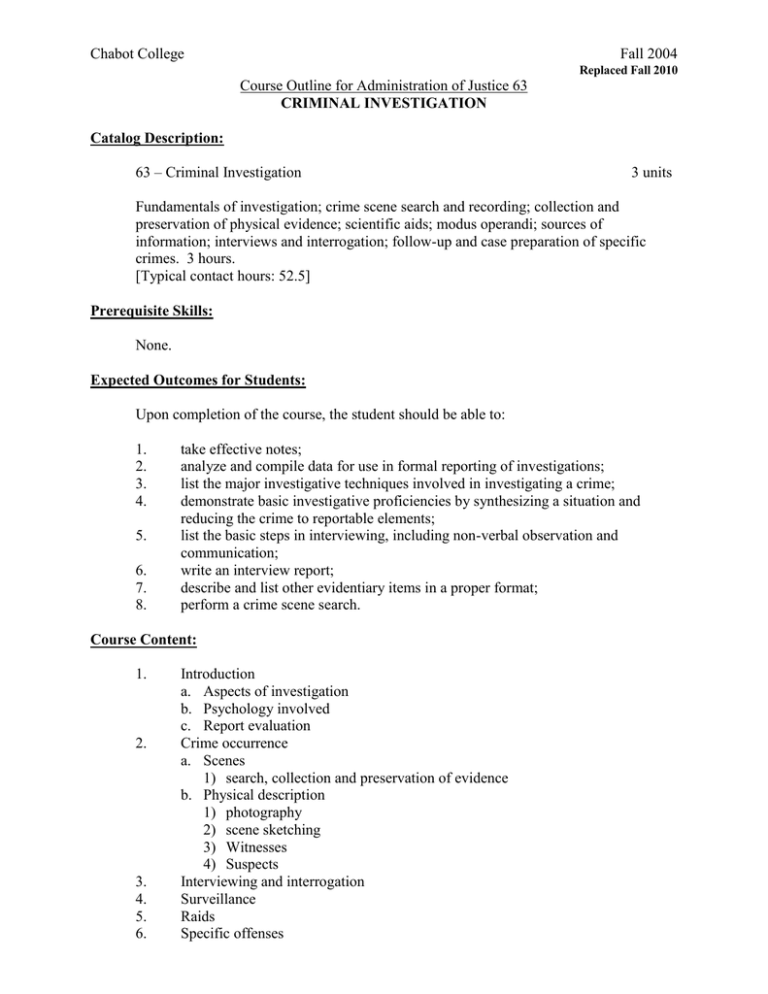
Chabot College Fall 2004 Replaced Fall 2010 Course Outline for Administration of Justice 63 CRIMINAL INVESTIGATION Catalog Description: 63 – Criminal Investigation 3 units Fundamentals of investigation; crime scene search and recording; collection and preservation of physical evidence; scientific aids; modus operandi; sources of information; interviews and interrogation; follow-up and case preparation of specific crimes. 3 hours. [Typical contact hours: 52.5] Prerequisite Skills: None. Expected Outcomes for Students: Upon completion of the course, the student should be able to: 1. 2. 3. 4. 5. 6. 7. 8. take effective notes; analyze and compile data for use in formal reporting of investigations; list the major investigative techniques involved in investigating a crime; demonstrate basic investigative proficiencies by synthesizing a situation and reducing the crime to reportable elements; list the basic steps in interviewing, including non-verbal observation and communication; write an interview report; describe and list other evidentiary items in a proper format; perform a crime scene search. Course Content: 1. 2. 3. 4. 5. 6. Introduction a. Aspects of investigation b. Psychology involved c. Report evaluation Crime occurrence a. Scenes 1) search, collection and preservation of evidence b. Physical description 1) photography 2) scene sketching 3) Witnesses 4) Suspects Interviewing and interrogation Surveillance Raids Specific offenses Chabot College Course Outline for Administration of Justice 63, Page 2 Fall 2004 Methods of Presentation: 1. 2. 3. 4. 5. Lecture and discussion Audio-visual aids Role playing Classroom and field demonstrating Information sheets Assignments and Methods of Evaluating Student Progress: 1. 1. Typical Assignments a. Complete a crime scene report from a videotaped example b. Role play a witness interview c. Prepare a case for prosecution, including the crime scene investigation, interview and interrogation reports, and scientific analyses of relevant evidence Methods of Evaluating Student Progress a. Attendance and participation b. Quizzes, midterm and final c. Evaluation of role-playing exercises d. Written reports on crime scene investigation and case preparation Textbook(s) Typical: Criminal Investigation, Swanson, Chamelin, Territo and Leonard, McGraw-Hill Publishing Company, 2002, or latest edition. Special Student Materials: None. sb:/word/AJ63 Revised: 11-6-03
